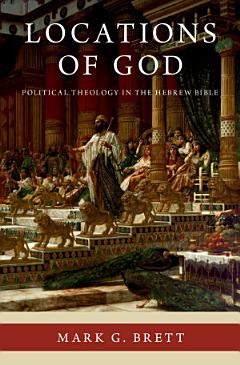Critical reflection on the intersections of religious and political life--which includes such topics as sovereignty, leadership, law, peoplehood, hospitality, redemption, creation, and eschatology--can be broadly termed "Political Theology." In Locations of God, Mark G. Brett focuses primarily on the historical books of the Bible, comparing them against the lived realities of life under the Assyrian Empire that overshadowed much of ancient Israel's political life. Brett suggests that an imaginary nation and its imperial alternatives were woven into the biblical traditions by authors who enjoyed very little in the way of political sovereignty. Using political theology to motivate the discussion, Brett shows us just how the earthly situation of ancient Israel contributed to its theology as reflected in the Hebrew Bible.

